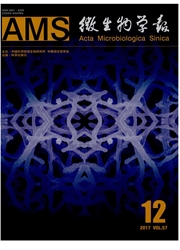

 中文摘要:
中文摘要:
随着分子生物学、生物信息学和各种理化检测技术的发展,特别是人类基因组计划成功实施以来,基因组学研究取得了重大突破与进展。而包括转录组学、蛋白组学和代谢组学在内的后基因组学也相继出现,并被广泛应用在环境微生物学的各个研究领域。本文主要概述了当前基因组学、转录组学、蛋白质组学和代谢组学在污染环境生物修复研究中的最新研究进展,分析比较了各组学的优势与不足,同时结合本课题组的主要研究方向探讨了各生物组学在赤潮生消过程和有机污染物降解机理等研究中的应用。
 英文摘要:
英文摘要:
Environmental pollutants are a major concern worldwide.Bioremediation mediated by microorganisms is a highly promising technology that is environmentally friendly,safe and effective.However,successful execution of these bioremediation strategies requires a complete understanding of factors governing the growth,metabolism,dynamics and functions of indigenous microbial communities at contaminated sites.The combination of genomics,transcriptomics,proteomics and metabolomics has provided a crucial insight into microbial communities and their mechanisms in bioremediation of polluted environment.This current review is focused on application of these technologies in bioremediation at contaminated sites.Limitations of each"-omics"analysis are briefly discussed and integration of these "-omics"technologies in study the processes of harmful algal bloom and the microbial degradation metabolism of organic pollutants are presented.
 同期刊论文项目
同期刊论文项目
 同项目期刊论文
同项目期刊论文
 A novel algae-lysing microorganism that inhibits the growth of Phaeodactylum tricornutum and other a
A novel algae-lysing microorganism that inhibits the growth of Phaeodactylum tricornutum and other a Mangrovimonas yunxiaonensis gen. nov. sp. nov., isolated from Yunxiao mangrove sediment, Fujian prov
Mangrovimonas yunxiaonensis gen. nov. sp. nov., isolated from Yunxiao mangrove sediment, Fujian prov Virus infection disturbs cyclin expression, leading to cell cycle arrest in the unicellular marine a
Virus infection disturbs cyclin expression, leading to cell cycle arrest in the unicellular marine a Phaeocystidibacter luteus gen. nov., sp nov., a member of the family Cryomorphaceae isolated from th
Phaeocystidibacter luteus gen. nov., sp nov., a member of the family Cryomorphaceae isolated from th Bacterial community dynamics during a bloom caused by Akashiwo sanguinea in the Xiamen Sea Area, Chi
Bacterial community dynamics during a bloom caused by Akashiwo sanguinea in the Xiamen Sea Area, Chi Imperialibacter roseus gen. nov., sp. nov., a novel bacterium of the family Flammeovirgaceae isolate
Imperialibacter roseus gen. nov., sp. nov., a novel bacterium of the family Flammeovirgaceae isolate Diversity and abundance of anammox bacterial community in the deep-ocean surface sediment from equat
Diversity and abundance of anammox bacterial community in the deep-ocean surface sediment from equat Effect of Oxidative Stress Induced by Brevibacterium sp BS01 on a HAB Causing Species-Alexandrium ta
Effect of Oxidative Stress Induced by Brevibacterium sp BS01 on a HAB Causing Species-Alexandrium ta Novel Bacterial Isolate from Permian Groundwater, Capable of Aggregating Potential Biofuel-Producing
Novel Bacterial Isolate from Permian Groundwater, Capable of Aggregating Potential Biofuel-Producing 期刊信息
期刊信息
